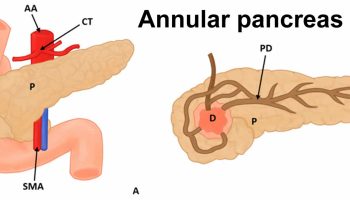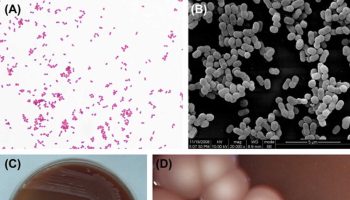Contents
- What is progestin
- What are progestin only birth control pills?
- What does progestin do?
- Progestin only birth control pills benefits
- How do I take progestin only birth control pills?
- What if I do not take my progestin only birth control pill on time?
- How do I start taking progestin only birth control pills?
- What if I forget to take a progestin only pill?
- What to expect when I stop taking progestin only pills?
- When to use a backup method of birth control
- Progestin side effects
- What is progestin birth control injection?
What is progestin
Progestin is a form of progesterone, a hormone that plays a role in the menstrual cycle and pregnancy. Progesterone is the naturally occurring hormone that is actively secreted by the ovary and interacts with progesterone receptors in the reproductive tract, mammary gland and central nervous system. Progestins are compounds with biological activities similar to progesterone. Progestins developed for clinical use include desogestrel, dydrogesterone, levonorgestrel, medroxyprogesterone, megestrol, 19-nortestosterone, norethindrone, norgestrel and norgestimate, among others. Many of these progestins are used in combination with estrogens in oral combined hormonal birth control pills. In addition, progestin also can be used by itself in progestin-only pills and the birth control injection and to treat secondary amenorrhea, abnormal uterine bleeding, endometriosis, infertility and premature labor. Progestins have also been used to treat progesterone sensitive cancers (endometrial, renal, breast), and as therapy of anorexia and cachexia due to cancer chemotherapy or the acquired immunodeficiency syndrome (AIDS). Progestins used without estrogens include: medroxyprogesterone (Provera and others), megestrol (Megase) and norethindrone (Camila, Errin, Micronor, Aygestin).
Common side effects of progestin therapies include nausea, headaches, anxiety, weight gain, edema and breast tenderness and engorgement.
Progestin-only pills contain progestin. They are available by prescription only. Progestin-only pills (mini-pills) and the injection have about the same effectiveness as combination estrogen and progestin pills, rings, and patches.
The birth control implant and the hormonal intrauterine device (IUD) also are progestin-only forms of birth control.
What are progestin only birth control pills?
Birth control pills help keep you from getting pregnant. The pills with only progestin come in 28-day packs. Every pill is active. Each has only progestin, and no estrogen. These types of birth control pills often are used for women who have medical reasons that prevent them from taking a combination oral contraceptive pill (pills that contain progestin and estrogen). Some of the reasons to take progestin-only birth control pills include:
- History of migraine headaches
- Currently breastfeeding
- History of blood clots
Progestin-only pills are very effective if taken correctly.
Progestin-only pills work by making your mucus too thick for sperm to move through.
What does progestin do?
Progestin-only birth control pills, sometimes called “mini-pills,” have several effects in the body that help prevent pregnancy:
- The mucus in the cervix thickens, making it difficult for sperm to enter the uterus and fertilize an egg.
- They stop ovulation, but they do not do so consistently. About 40% of women who use progestin-only pills will continue to ovulate.
- They thin the lining of the uterus.
Progestin-only birth control pills must be taken at the same time every day (within 3 hours of your normal time)
Progestin only birth control pills benefits
Progestin only pills benefits:
- Do not interfere with sex.
- They may reduce menstrual bleeding or stop your period altogether.
- Because it doesn’t contain estrogen, progestin only pills are not associated with an increased risk of high blood pressure or cardiovascular disease especially for smokers and can be taken even if you have certain health conditions that prevent you from taking combination pills, such as a history of deep vein thrombosis or uncontrolled high blood pressure.
- They can be used immediately after childbirth, even if you are breastfeeding.
- They are highly effective in women older than 40 due to their naturally declining fertility
How do I take progestin only birth control pills?
The progestin-only pill comes in packs of 28 pills. All the pills in the pack contain progestin. You must take the progestin-only pill at the same time every day for 28 days. It is important to take the progestin-only pill at the exact same time each day for maximum effectiveness. Do not skip pills for any reason—even if you bleed between periods or feel sick.
When you have 2 packs of pills left, call your health care provider for an appointment to get a refill. The day after you finish a pack of pills you need to start a new pack.
With progestin only pills you may:
- Not get periods
- Bleed a bit on and off through the month
- Get your period in the fourth week
What if I do not take my progestin only birth control pill on time?
If you do not take the progestin pill on time, your mucus will start to thin and you could become pregnant.
When you realize you missed your pill, take it as soon as possible. If it is 3 hours or more since it was due, use a backup birth control method for the next 48 hours after taking the last pill. Then take your next pill at the usual time. If you had sex in the last 3 to 5 days, consider asking your provider for emergency contraception. If you have any questions or concerns, call your provider.
If you vomit after you take a pill, take another pill as soon as possible, and use a backup birth control method for the next 48 hours.
How do I start taking progestin only birth control pills?
You may start taking progestin only birth control pills any time in your menstrual cycle.
Protection from pregnancy begins after 2 days. If you have sex within the first 48 hours after your first pill, use another birth control method (condom, diaphragm, or sponge). This is called backup birth control.
What if I forget to take a progestin only pill?
If a progestin only pill is missed by more than 3 hours, you should take a pill as soon as possible and use a backup method of contraception (such as condoms) for the next 2 days. If vomiting or severe diarrhea occurs within 3 hours after taking a progestin only pill, the progestin may not be absorbed completely by your body. Keep taking your progestin only pills, but use a backup method until 2 days after your vomiting or diarrhea stops.
What to expect when I stop taking progestin only pills?
You may decide to stop taking progestin birth control pills because you want to get pregnant or you want to change to another birth control method. Here are some things to expect when you stop taking the progestin only birth control pill:
- You should get your period 4 to 6 weeks after you take your last pill. If you do not get your period in 8 weeks, call your provider.
- Your period may be heavier or lighter than usual.
- You may have mild spotting of blood before you get your first period.
- You might become pregnant right away.
When to use a backup method of birth control
Use a backup method of birth control, such as a condom, diaphragm, or sponge, if:
- You take a pill 3 hours or more after it was due.
- You miss 1 or more pills.
- You are sick, throwing up, or have loose stools (diarrhea). Even if you take your pill, your body may not absorb it. Use a backup method of birth control, and call your doctor.
- You are taking another medicine that may prevent the pill from working. Tell your doctor or pharmacist if you take any other medicines, such as antibiotics, seizure medicine, medicine to treat HIV, or St. John’s wort. Find out if what you take will interfere with how well the pill works.
Progestin side effects
Progestin-only pills may not be a good choice for women who have certain medical conditions, such as some forms of lupus. Women who have breast cancer or who have a history of breast cancer should not take progestin-only pills.
Bleeding may be unpredictable. You may have short cycles of bleeding, spotting, or heavy bleeding or no bleeding at all. Other side effects include headaches, nausea, and breast tenderness.
Call your doctor if:
- You have swelling in your leg.
- You have leg pain.
- Your leg feels warm to the touch or has changes in skin color.
- You have fever or chills.
- You are short of breath and it is hard to breathe.
- You have chest pain.
- You cough up blood.
What is progestin birth control injection?
The birth control injection is an injection of the hormone depot medroxyprogesterone acetate. It provides protection against pregnancy for 3 months.
How does progestin injection work?
The injection has several effects that work together to prevent pregnancy:
- It stops ovulation.
- It thickens and decreases the amount of cervical mucus. This makes it difficult for sperm to enter the uterus and fertilize an egg.
- It thins the lining of the uterus.
How is progestin injection given?
A health care professional must give the injection. The first shot can be given at any time during your menstrual cycle as long as you and your health care professional are reasonably sure you are not pregnant.
How often do I need progestin injections?
You must return to your health care professional every 13 weeks for repeated injections. The repeat injection can be given up to 2 weeks late (15 weeks from the last injection). If it is given more than 2 weeks late, you will need to avoid sexual intercourse or use a backup method of birth control, such as condoms, for the next 7 days.
What are the benefits of the progestin injection?
- The injection does not need to be taken daily.
- It does not interfere with sex or daily activities.
- No one can tell you are using birth control.
- It has several health benefits not related to birth control:
- Reduced risk of cancer of the uterus if used long term
- Possible protection against pelvic inflammatory disease
- Reduced pelvic pain caused by endometriosis
- Possible absence of periods
- Possible relief of certain symptoms of sickle cell disease and seizure disorders
- Possible decrease in bleeding associated with uterine fibroids
What are possible risks of progestin injection?
Bone loss may occur while using the birth control injection. When the injections are stopped, at least some and sometimes all of the bone that is lost is gained back. Women who have multiple risk factors for cardiovascular disease may be at increased risk of cardiovascular disease while using the injection. This increased risk may last for some time after the method is stopped. Women with a history of stroke, vascular disease, or poorly controlled high blood pressure also may be at increased risk of cardiovascular disease while using this method.
What are possible side effects of progestin injection?
The injection may cause irregular bleeding. Some women report weight gain while using progestin-only birth control methods. Among women who gained weight, the average amount of weight gained was less than 5 pounds. It takes an average of 10 months for pregnancy to occur after stopping the injection.





